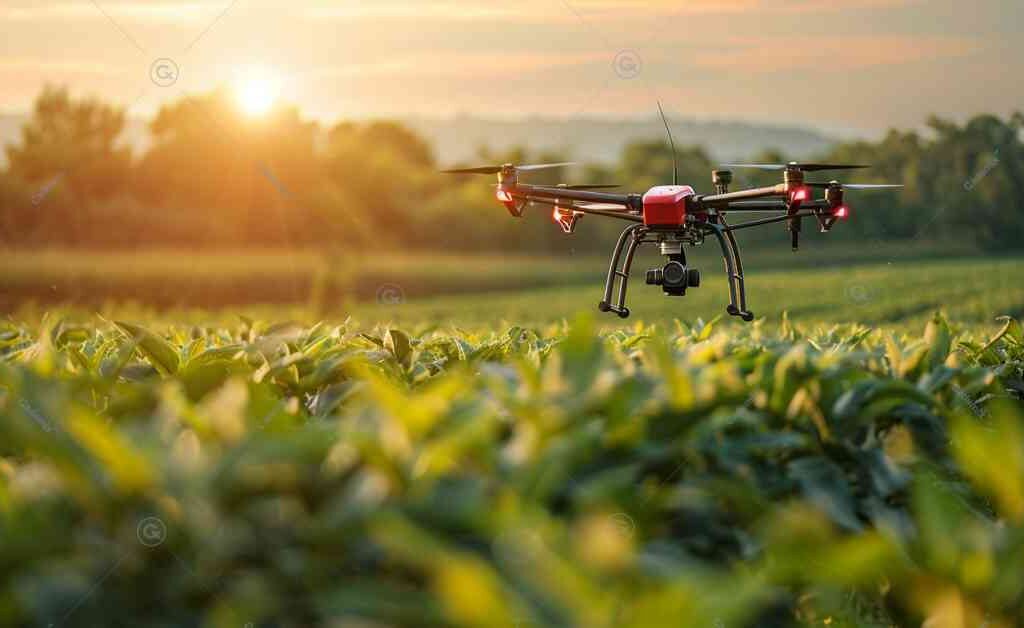Organic farming has gained significant traction over the past few decades, heralded as a sustainable and environmentally friendly alternative to conventional agricultural practices. This method of farming focuses on producing food in harmony with nature, avoiding synthetic chemicals, and promoting biodiversity. In this narrative, we will explore the principles of organic farming, its benefits, challenges, and the steps involved in transitioning to an organic farming system.
Cademix Instute of Technology-Agriculture Editorial Board
Keywords: organic farming, sustainable agriculture, organic farming principles, benefits of organic farming, transitioning to organic farming, organic farming challenges

The Principles of Organic Farming
Organic farming is grounded in principles that prioritize ecological balance, soil health, and biodiversity. These principles guide farmers in adopting practices that sustain and enhance the health of ecosystems.
Ecological Balance
Ecological balance is at the heart of organic farming. This principle involves creating a farming system that works in harmony with natural processes. Organic farmers use crop rotation, intercropping, and polyculture to mimic natural ecosystems, which helps maintain soil fertility and control pests without relying on synthetic chemicals.
Soil Health
Healthy soil is the foundation of organic farming. Farmers focus on building and maintaining soil fertility through the use of organic matter such as compost, manure, and cover crops. These practices enhance soil structure, increase microbial activity, and improve water retention, leading to more resilient crops.
Biodiversity
Biodiversity is essential in organic farming systems. By promoting a diverse range of plants, animals, and microorganisms, organic farmers create a more resilient ecosystem. This diversity helps prevent the spread of pests and diseases, improves pollination, and contributes to overall farm health.
The Benefits of Organic Farming
Organic farming offers numerous benefits for the environment, human health, and local communities. These advantages make it an appealing choice for farmers and consumers alike.
Environmental Benefits
Organic farming practices have a positive impact on the environment. By avoiding synthetic pesticides and fertilizers, organic farming reduces pollution and the risk of chemical runoff into waterways. Additionally, organic farms often have higher levels of soil organic matter and better soil health, which can sequester carbon and mitigate climate change.
Health Benefits
Consumers are increasingly drawn to organic products for their potential health benefits. Organic foods are free from synthetic pesticides and genetically modified organisms (GMOs), reducing the risk of exposure to harmful chemicals. Studies have shown that organic foods can contain higher levels of certain nutrients, such as antioxidants, which contribute to overall health and well-being.
Economic and Social Benefits
Organic farming can provide economic and social benefits for local communities. Organic farms often rely on traditional farming knowledge and practices, supporting local heritage and culture. Additionally, organic farming can create job opportunities and promote rural development by supporting small-scale and family-owned farms.

Challenges in Organic Farming
While organic farming offers many benefits, it also presents unique challenges that farmers must navigate to achieve success.
Transition Period
The transition from conventional to organic farming can be challenging. During the transition period, which typically lasts three years, farmers must adhere to organic practices without the immediate benefit of organic certification and premium prices. This can result in lower yields and financial strain as the farm adjusts to new methods.
Pest and Disease Management
Managing pests and diseases in an organic system requires a different approach compared to conventional farming. Organic farmers rely on cultural, biological, and mechanical controls rather than synthetic chemicals. This can involve more labor-intensive practices and requires a deep understanding of ecological interactions on the farm.
Market Access and Certification
Obtaining organic certification can be a complex and costly process. Farmers must adhere to strict standards and undergo regular inspections to maintain their certification. Additionally, accessing markets for organic products can be challenging, particularly for small-scale farmers who may face competition from larger operations.
Steps to Transition to Organic Farming
Despite the challenges, many farmers successfully transition to organic farming by following a structured approach. Here are key steps to consider when making the switch to organic practices.
Assessing Farm Readiness
Before transitioning to organic farming, it’s important to assess the readiness of your farm. Evaluate the current state of your soil, crop diversity, and existing practices. Identify areas that may require significant changes and develop a plan to address them.
Developing a Transition Plan
A well-thought-out transition plan is crucial for success. This plan should outline the steps needed to convert to organic practices, including soil improvement, crop rotation schedules, and pest management strategies. It’s also important to consider the financial implications and develop a budget that accounts for potential changes in yield and input costs.
Building Soil Health
Improving soil health is a foundational step in transitioning to organic farming. Begin by incorporating organic matter such as compost and cover crops to build soil fertility. Practice crop rotation and polyculture to enhance biodiversity and soil structure. Regular soil testing can help monitor progress and guide further improvements.
Implementing Organic Practices
Start implementing organic practices gradually to allow your farm to adjust. Focus on building healthy soil, diversifying crops, and adopting natural pest control methods. Utilize resources such as organic farming courses, extension services, and farmer networks to gain knowledge and support during the transition.
Obtaining Organic Certification
Once your farm is fully compliant with organic standards, apply for organic certification. This process involves detailed record-keeping, regular inspections, and adherence to specific regulations. Certification not only allows you to market your products as organic but also provides credibility and access to premium markets.
Tips and Tricks for Successful Organic Farming
Success in organic farming often hinges on attention to detail, continuous learning, and community support. Here are some tips and tricks to help you thrive as an organic farmer.
Continuous Learning
Stay informed about the latest research and developments in organic farming. Attend workshops, conferences, and field days to learn from experts and fellow farmers. Subscribe to organic farming publications and join online forums to stay connected with the organic farming community.

Leveraging Technology
Utilize technology to enhance your organic farming practices. Tools such as soil sensors, weather apps, and farm management software can help optimize resource use and improve decision-making. Additionally, explore organic pest control products and biopesticides that align with organic standards.
Building a Support Network
Connect with other organic farmers and support organizations to share knowledge and resources. Join local organic farming associations and cooperatives to access collective marketing opportunities and bulk purchasing of organic inputs. Mentorship and peer support can be invaluable as you navigate the challenges of organic farming.
Diversifying Income Streams
Consider diversifying your income streams to enhance farm profitability. In addition to selling organic produce, explore opportunities such as agritourism, value-added products, and direct-to-consumer sales. Diversification can provide financial stability and reduce reliance on a single source of income.
The Future of Organic Farming
The future of organic farming looks promising, driven by increasing consumer demand, advancements in sustainable agriculture, and supportive policies. As more farmers adopt organic practices, the positive impact on the environment, human health, and rural communities will continue to grow.
Consumer Trends
Consumer awareness and preference for organic products are on the rise. This trend is expected to continue, with more people seeking out organic options for their perceived health benefits and environmental impact. Farmers who embrace organic practices can tap into this growing market and build a loyal customer base.
Technological Innovations
Advancements in technology will continue to play a significant role in the evolution of organic farming. Innovations in areas such as precision agriculture, remote sensing, and biotechnology have the potential to enhance organic farming practices, improve yields, and reduce environmental impact.
Policy Support
Governments and international organizations are increasingly recognizing the importance of organic farming for sustainable development. Policies and programs that support organic farming, such as subsidies, research funding, and market development initiatives, will further encourage the adoption of organic practices.
Conclusion and Call to Action
Organic farming represents a sustainable and holistic approach to agriculture that benefits the environment, human health, and local communities. By understanding its principles, overcoming challenges, and adopting best practices, farmers can successfully transition to and thrive in organic farming.
If you are interested in exploring organic farming and making a positive impact, consider joining the Cademix Acceleration Program. Our consultancy services and educational programs are designed to support farmers and agricultural professionals in adopting sustainable practices and achieving their goals.
Discover our Cademix Career Autopilot program and learn how we can help you navigate the complexities of organic farming and sustainable agriculture. For additional resources and insights, visit The Organic Trade Association (OTA) and Rodale Institute.

